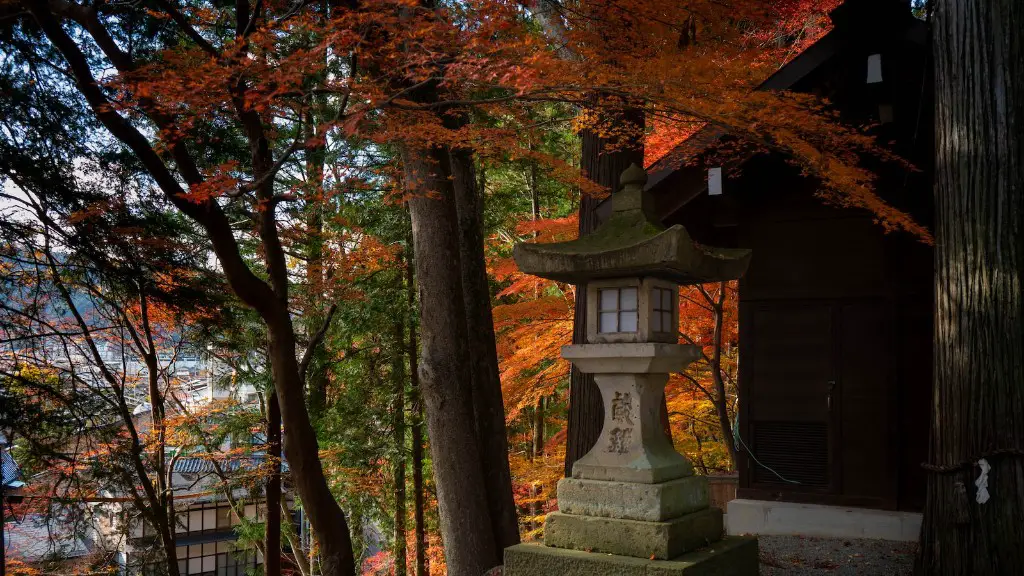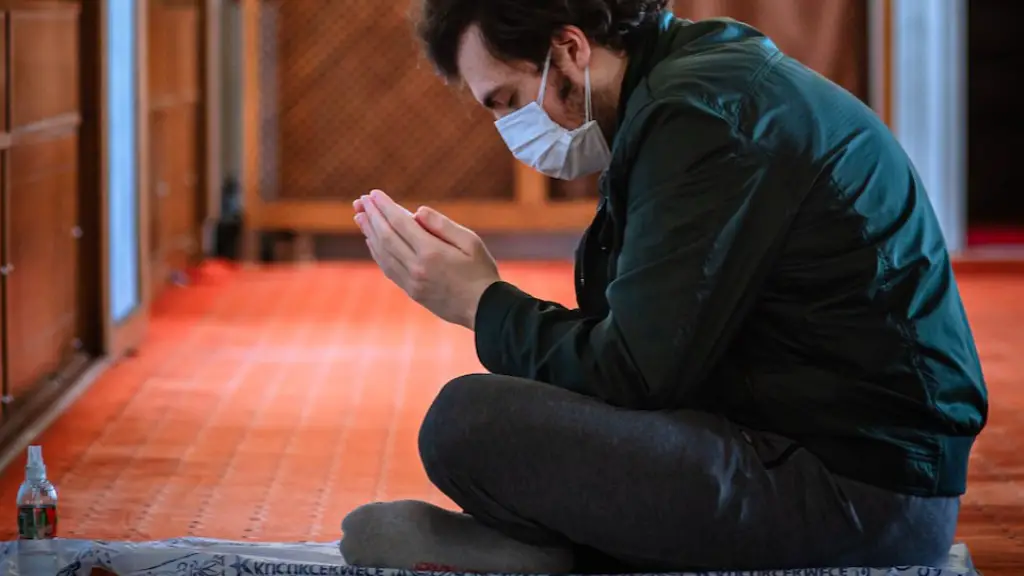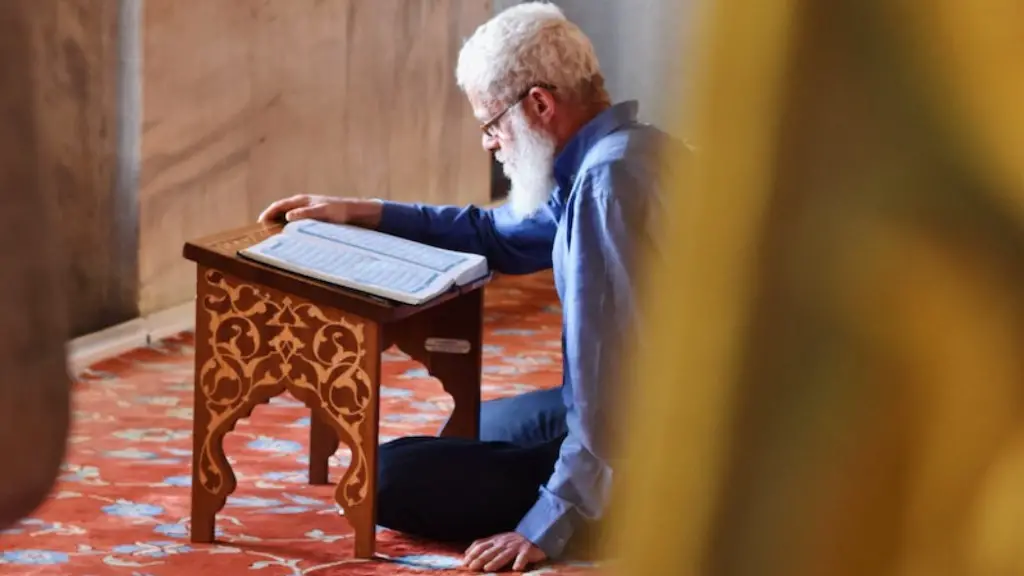The Theravada tradition is the oldest surviving Buddhist tradition. It is predominant in Sri Lanka, Burma, Cambodia, Laos, Thailand, and parts of southwest China. Theravada Buddhists typically believe that nibbana (nirvana) can be attained in this lifetime, and that the goal of the spiritual life is to gain release from the cycle of rebirth (samsara).
The Theravada tradition upholds the Pali scriptures as representative of the Buddha’s original teaching, and as such, they believe in the Three Universal Truths:
1. All things are impermanent and subject to change.
2. All things are subject to suffering or dukkha.
3. All things are not-self or anatta.
How do Theravada Buddhists worship?
Puja is an important part of both Theravada and Mahayana Buddhism. In Theravada Buddhism, puja is typically performed by putting flowers and candles in front of an image of the Buddha. This is done as an offering and request for blessings. In Mahayana Buddhism, puja ceremonies can take place over a longer period of time. This allows for more prayer and reflection. Buddhists in Mahayana Buddhism may also ask for help from the Buddha during their puja.
Theravada Buddhism is the older of the two main divisions of Buddhism, and is often referred to as the ‘traditions of the elders’. Many Theravada Buddhists follow the teachings of the Buddha exactly, and many of them are monks or nuns. Theravada Buddhists strive to be arhats.
What is Theravada Buddhism in simple words
Theravada Buddhism is the older of two major Buddhist traditions, both of which center around the attainment of nirvana, a perfect state of enlightenment. Theravadins follow the original sutras, or teachings of the Buddha; however, monks and laypeople have different roles. Monks live in monasteries and devote their lives to study and meditation, while laypeople live in the world and support the monks financially. In return, the monks teach the laypeople the Dharma, or the Buddha’s teachings.
Theravada Buddhism is unique in its extreme emphasis on monastic life. The majority of Theravada practitioners choose a monastic path away from the secular world. This is because Theravada Buddhism places a great importance on the monastic life and its ability to help one attain nirvana.
Do Theravada believe in God?
Theravada beliefs are divided into various categories, most of which apply to other forms of Buddhism. These include:
1. Belief in the Supernatural (Deity): Members of the religion do not consider the existence of God, and only consider the Awakened One’ as the utmost, fully enlightened person, but not as their God.
2. Belief in the Three Jewels: The Three Jewels are the Buddha, the Dharma (the teachings of the Buddha), and the Sangha (the community of monks and nuns). Theravadins believe that by taking refuge in the Three Jewels, one can attain Nirvana.
3. Belief in Karma: Theravadins believe that Karma is the law of cause and effect, and that good deeds will lead to positive results while bad deeds will lead to negative results.
4. Belief in Rebirth: Theravadins believe that after death, a person’s soul will be reborn into another body, and that this cycle of birth and death will continue until one attains Nirvana.
5. Belief in the Four Noble Truths: The Four Noble Truths are the truth of suffering, the truth of the origin of suffering, the truth of the cessation of suffering
There are a few reasons for this rule. Firstly, alcohol is seen as a substance that can cloud the mind and lead to harmful and reckless behavior. Secondly, monks and nuns are expected to be role models for the lay community and so they are expected to uphold a certain standard of behavior. Finally, alcohol is generally seen as a indulgence that is not conducive to the simple life that monks and nuns lead.
Does Theravada Buddhism teach Buddha a god?
The Buddha was a great teacher who founded the Theravada tradition of Buddhism. He was a man, not a god, and his followers believe that he was a savior, not a teacher. To this day, the Theravada tradition prevails in parts of India, Sri Lanka, Myanmar, Cambodia, and Thailand.
There are two main types of Buddhism: Theravada and Mahayana. Theravada Buddhism is focused on the individual and achieving Nirvana (ending the cycle of Samsara and escaping reincarnation). Mahayana Buddhism, on the other hand, is focused on the Buddha and achieving enlightenment. However, they ultimately choose to stay in Samsara and reincarnate out of compassion for others.
What is Theravada also known as
Theravada Buddhism is sometimes called “Southern Buddhism” because it has been historically dominant in Sri Lanka, Thailand, and Burma. In contrast, “Northern Buddhism” migrated northwards from India into Tibet, China, Japan, and Korea.
The Theravada tradition teaches that developing ethical conduct is a gateway to the path to awakening, as well as a practice that can improve the quality of one’s character and life along the way. Committing to the first five precepts is the baseline practice of ethical behavior. The precepts are: to refrain from harming living beings; to refrain from taking what is not given; to refrain from sexual misconduct; to refrain from speaking falsely; and to refrain from taking intoxicants. Following these precepts help to create a foundation of goodness and integrity that can lead to a more awakened state of being.
What is the key virtue of Theravada Buddhism?
Giving is seen as the beginning of virtue in Theravada Buddhism and as the basis for developing further on the path. In Buddhist countries, this is seen in the giving of alms to Buddhist monastics but also extends to generosity in general (towards family, friends, coworkers, guests, animals).
The Theravada school of Buddhism teaches that the ultimate goal is to achieve nirvana, or liberation from suffering. To reach this goal, practitioners must follow the path of the historical Shakyamuni Buddha and strive to become like the arahat, or “worthy ones.” The Theravada tradition places great emphasis on the Pali Canon of scriptures and commentaries, which are seen as essential guides to the Buddha’s teachings. In addition, Theravada Buddhists venerate the historical Buddha as a spiritual ideal and model.
Does Theravada believe in nirvana
Nirvana, or the liberation from cycles of rebirth, is the highest aim of the Theravada tradition. In the Mahayana tradition, the highest goal is Buddhahood, in which there is no abiding in nirvana. Buddha helps liberate beings from saṃsāra by teaching the Buddhist path.
Buddhism does not place much importance on the institution of marriage, and therefore does not provide rules or traditions about it. Each person is allowed to make their own decision about whether or not they want to be married, how many children they want to have, and who they want to marry.
Does Theravada believe in reincarnation?
Tibetan Buddhists believe that there is an in-between stage known as the bardo which can last up to 49 days. This is the time between death and rebirth when the soul is said to be in a limbo state. Theravada Buddhists (from Sri Lanka, Myanmar, Thailand, Laos and Cambodia) consider that rebirth can be immediate. Those who attain enlightenment (nirvana/nibbana) do not get reborn upon their death.
Ānantarya Karma (Sanskrit) or Ānantarika Kamma (Pāli) are the most serious offences in Buddhism. They are so serious that, at death, through the overwhelming karmic strength of any single one of them, they bring immediate disaster. Both Buddhists and non-Buddhists must avoid them at all costs.
Is Theravada Buddhism violent
The Dhammapada and the Cakkavattisihanada Sutta are two key texts that form the basis of Theravada Buddhist teachings on the renunciation of violence. In the Dhammapada, the Buddha lays out the path to liberation from suffering, and in the Cakkavattisihanada Sutta, he provides a vision of an ideal society in which all beings live in harmony. Together, these texts demonstrate that Theravada Buddhism has a strong foundation in denouncing violence and promoting peace.
In Sri Lanka and the Theravada countries of South East Asia, monks are obliged by the monastic code, Vinaya to accept almost any food that is offered to them, including meat, unless they suspect the meat was slaughtered specifically for them. This is because the monks are not supposed to kill any living beings, and therefore, they cannot refuse food that may contain meat. However, in other parts of the world, such as China and Japan, where Buddhism is also practiced, many people are vegetarian, and some monasteries have vegetarian guidelines for their monks.
Final Words
According to Theravada Buddhism, the Buddha was a normal human being who attained enlightenment through his own efforts. He then preached his teachings in order to help others achieve the same liberation from suffering. Theravada Buddhists believe that it is possible for anyone to achieve enlightenment and that the Buddha’s teachings provide the path to do so.
The Theravada tradition upholds the belief that the Buddha was a human being who became enlightened through his own effort and achievement. Theravada Buddhists therefore strive to live exemplary moral lives and to develop their own wisdom and understanding. The ultimate goal is to achieve nibbana, or liberation from the cycle of rebirth.




